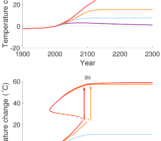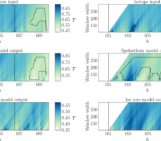The APS Topical Group on the Physics of Climate (APS-GPC) is excited to launch a new virtual monthly seminar series on climate physics and variability. These seminars are aimed at introducing the broader physics community (and math, engineering, and other communities) to the fundamentals of climate science as well as cutting-edge research and open questions in this field.
APS invites you to attend this new virtual seminar series and spread the word to those interested. In particular, please share this email with undergraduate and graduate students. Sign up here to receive updates about the future GPC virtual seminars https://info.aps.org/l/640833/2022-06-07/rvxzc
Below is the information on the first two upcoming talks:
Time/Date: July 20, 2022, 12-1 pm EDT
Speaker: Professor Tapio Schneider, Caltech
Talk title: “Turbulence: The great unsolved problem of classical and climate physics”
To receive a seminar zoom link, please register via this link: https://apsphysics.zoom.us/webinar/register/WN_MRM5tPwrTuyuR0p-RbTR7w
Time/Date: August 17, 2022, 12-1 pm EDT
Speaker: Professor Morgan O’Neill, Stanford University
Talk title: “The role of severe storms in the climate system”
To receive a seminar zoom link, please register via this link: https://apsphysics.zoom.us/webinar/register/WN_i_3v2dhQR9S3zz9Jaf8M-A
See the future seminar schedule here: https://engage.aps.org/gpc/resources/seminar-series




